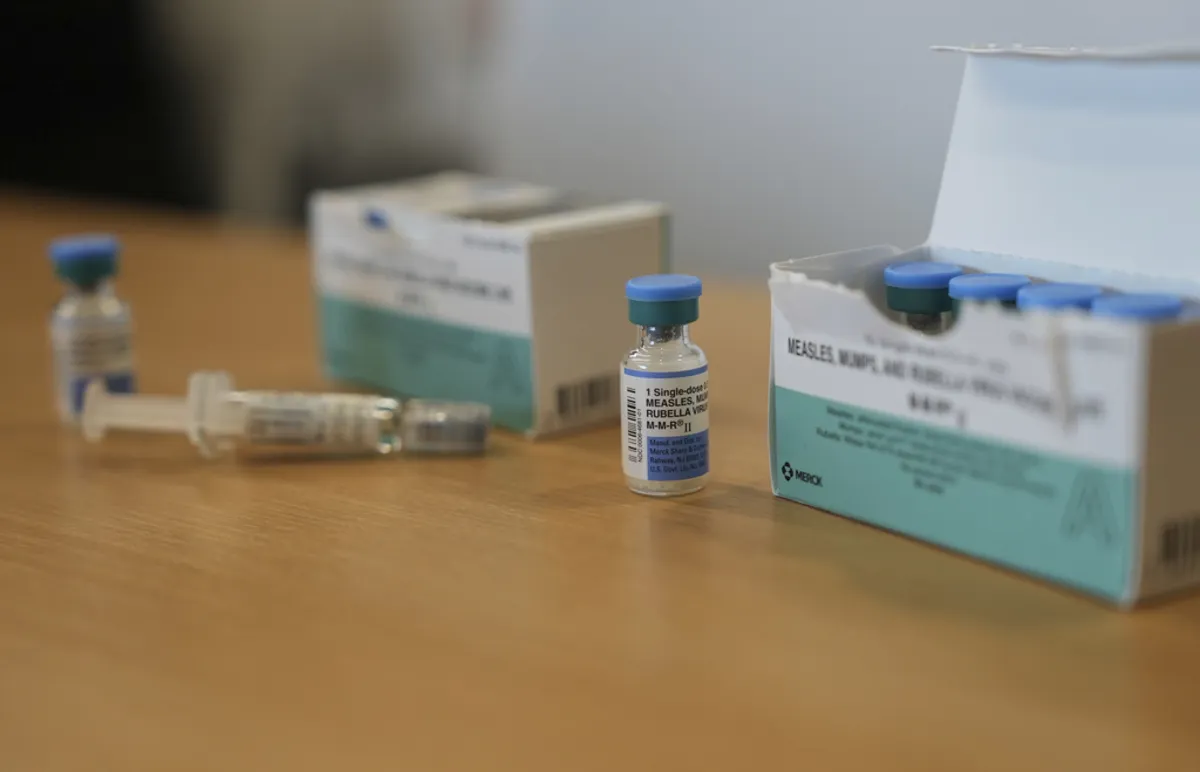
On Monday, public health officials confirmed another case of super-transmissible, vaccine-preventable measles in Colorado, marking the state's 21st case this year. This figure significantly exceeds the typical number of annual cases, raising concerns among health experts. The recent case involves an adult from Mesa County, whose vaccination status remains unknown. The individual may have been in close contact with another confirmed case reported in the same area last week.
Erin Minnerath, deputy director of Mesa County Public Health, explained that the signs and symptoms of measles often begin with respiratory issues. "Common symptoms include a cough, runny nose, and red eyes," Minnerath noted. "As the illness progresses, individuals may develop a high fever, followed by a characteristic rash." The rash typically starts at the hairline and spreads down the face, making early recognition crucial for containment.
Public health officials have identified several potential exposure locations in and around Grand Junction, Colorado. These include a clinic, a church, and multiple restaurants, all of which are listed on the state health department’s website. Authorities are currently investigating whether these cases are examples of community transmission, further emphasizing the need for vigilance.
In addition to the Mesa County cases, officials are alerting the public about a possible measles exposure at Denver International Airport (DIA). A passenger with a confirmed case of measles traveled through the airport's C concourse on Tuesday, August 12. The state health department, in collaboration with Denver officials and airport authorities, reported that the traveler arrived at gate C51 and subsequently boarded another flight at gate C50 the same day. Anyone who was present in these areas may have been exposed and should monitor for symptoms for up to 21 days following the potential exposure.
If you were in the vicinity of the reported locations, it is crucial to watch for symptoms of measles. Should any symptoms develop, health officials advise contacting your healthcare provider, urgent care facility, or emergency department prior to visiting in person. Be sure to inform them of your potential exposure to measles to ensure appropriate precautions are taken.
Dr. Rachel Herlihy, Deputy Chief Medical Officer and State Epidemiologist, emphasized the importance of staying updated on vaccinations, especially before traveling. "This incident serves as a reminder that crowded public spaces like airports increase the risk of exposure to communicable diseases," she stated. Vaccination is a key tool in protecting both individual and public health.
Of the 21 confirmed measles cases in Colorado this year, multiple cases have been reported in Arapahoe, Adams, Denver, El Paso, and Mesa counties. Alarmingly, two-thirds of these cases involved individuals who were unvaccinated or whose vaccination status was unknown. Among the reported cases, four involved children younger than 4 years old, while the remainder were adults. The state health department has confirmed that five individuals have been hospitalized due to complications, with no reported deaths. Notably, four of the hospitalized cases were unvaccinated.
Before 2025, Colorado had experienced minimal cases of measles over the past decade, often documenting one to two cases, or none at all in an entire year. This year, however, the landscape has changed dramatically, with hundreds of cases reported across the United States. According to the federal Centers for Disease Control and Prevention (CDC), as of August 5, 2025, there have been 1,356 confirmed measles cases across 41 states. Notably, 87 percent of these cases are associated with outbreaks, and over 170 individuals have been hospitalized, highlighting the seriousness of the situation.
As we continue to face a rise in measles cases, staying informed and up to date on vaccinations is more crucial than ever. Protect yourself and those around you by ensuring your vaccination status is current.